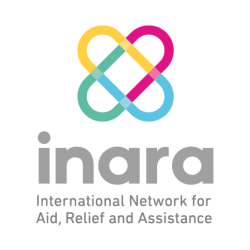Inara Teams Up With Unhcr To Try To Prevent Burns Amongst Refugee Children
UNHCR and INARA have this week launched a video to try to prevent burn injuries and reduce the number of refugee children suffering burns due to poor living conditions and lack of safety awareness.
Sofia Karim, Programme Manager at INARA, said: “Almost a third of all of our cases here at INARA are children that have been burnt from accidents while living as refugees here in Lebanon. We keep on getting more and more cases coming through all the time. We knew that we had to act to try and prevent it - and this is how our collaboration with UNHCR came about.”
UNHCR and INARA worked closely together to develop an educational video which will be circulated to refugees over WhatsApp and Facebook. The video will also be screened in all UNHCR and partner community centers.
The video features the father of one of INARA’s cases, Rouba, who fell on top of a teapot.
“I came back from work and my wife made me a cup of tea,” said Rouba’s father. “I started drinking it at the table while my girl was playing nearby. Suddenly she fell on the teapot.”
Rouba was left with severe burns that eventually went septic. INARA met the family and provided Rouba with the medical treatment that she so desperately needed.
The video also provides useful advice on how to prevent such burns at home. These include:
Keep children out of the reach of all means to ignite fire - including lighters and matches Always keep an eye on your child. Make sure they stay away from any source of heat, including: cooking gas, irons, burning coals, shisha charcoal and boiling liquids. As part of its support to life-saving hospital care for refugees in Lebanon, UNHCR covers 90 per cent of the hospital costs for severe burns. The management of severe burns requires highly specialized, expensive and often prolonged treatment which is available only at a few hospitals in Lebanon.
Dr Michael Woodman, Senior Public Health Officer at UNHCR Lebanon, said: “Severe burns are a serious issue and victims – especially young children – need urgent hospital care.”
In 2015, UNHCR covered the hospitalization fees of some 120 refugees with severe burns in Lebanon, most of whom were children. Dr Woodman added: “As we head towards winter when burns in the household are more frequent, we need to intensify our efforts to increase awareness on preventing burns”.
Sofia Karim added: “We really hope that this video will remind parents of these dangers, and have a real impact on cutting down the number of refugee children sustaining severe burns.”
While UNHCR covers the treatment for victims of acute burns, cases in need of additional reconstructive surgery are referred to INARA.
INARA provides life-altering and life-saving medical care, and fills the gaps in medical access when it is not provided by other institutions or non-profits.
When a child is referred to INARA, there are two ways INARA might be able to help:
If there are humanitarian organizations within INARA’s network that already provide the medical treatment the child needs, INARA refers these cases on and follows up with the organization If not, INARA fully finances the medical treatment that he or she needs - including physiotherapy, psychological support, and logistical costs such as transport. In the one year since INARA launched, they have provided complex and long term medical treatment to 28 children. This medical treatment includes: reconstructive surgery, dental surgery, and intensive physiotherapy.
